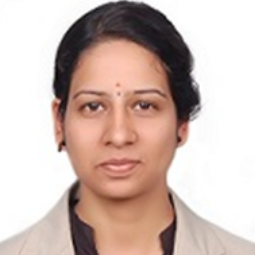
Geetha Kuntoji
Work place: B M S College of Engineering, Bengaluru - 560019, India
E-mail: geeta.kuntoji@gmail.com
Website:
Research Interests:
Biography
Geetha Kuntoji B.E (Civil), M.Tech (Marine Structures.), Ph.D (Marine Structures), Assistant Professor, Department of Civil Engineering, B M S College of Engineering, Bengaluru - 560019, India.
Research area: Soft computing techniques, Civil Engineering, Marine Structures, Ocean Engineering.
Author Articles
Application of Particle Swarm based Neural Network to Predict Scour Depth around the Bridge Pier
By Sreedhara B M Geetha Kuntoji Manu S Mandal
DOI: https://doi.org/10.5815/ijisa.2019.11.04, Pub. Date: 8 Nov. 2019
Scour around the bridge pier is one of the major factors which affect the safety and stability of the bridge structure. Due to the presence of complexity in the scour mechanism, there is no common and simple method to estimate the scour depth. The present paper gives an idea of hybridizing two techniques such as an artificial neural network with swarm intelligence technique particle swarm optimization to estimate the scour depth around the bridge pier and abbreviated as PSO-ANN. The present discussion covers the estimation of scour depth for clear water and live bed scour condition around circular and rectangular pier shapes. The independent variables, Sediment size (d50), sediment quantity (Sq), velocity (u) and time (t) are used as input to develop the models to estimate or quantify a dependent variable scour depth (ds). The efficiency and accuracy of the model are measured using model performances indicators such as Correlation Coefficient (CC), Normalized Root Mean Square Error (NRMSE), Nash Sutcliffe Error (NSE), and Normalized Mean Bias (NMB). The predicted results of both the models are compared with each other and also compared with measured scour depth. The study concludes that the proposed PSO-ANN model is suitable to estimate the scour depth in both the cases for circular and rectangular pier shapes.
[...] Read more.Other Articles
Subscribe to receive issue release notifications and newsletters from MECS Press journals